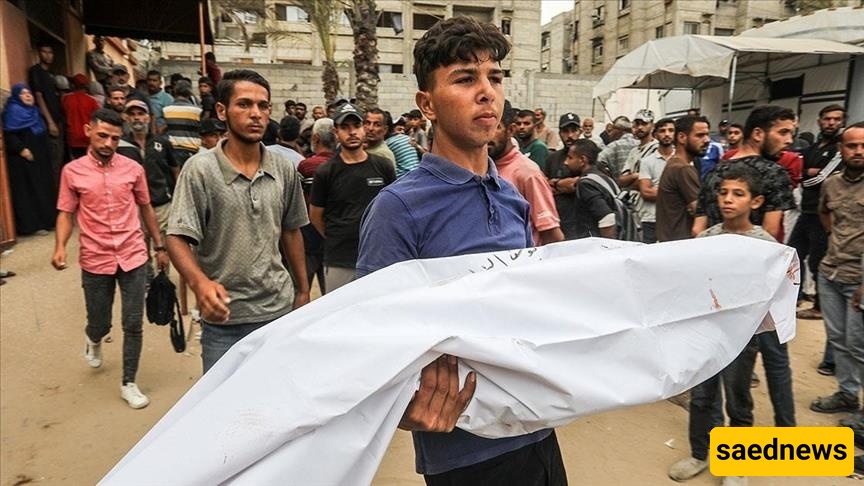SAEDNEWS: In a recent report, Human Rights Watch announced that the Israeli military has attacked several schools being used as shelters for civilians in the Gaza Strip, using American-made weapons.

According to Saed News, quoting CNN, a newly released 25-page report by Human Rights Watch includes analysis of satellite imagery, recorded videos, eyewitness testimonies, and remnants of munitions found at the attack sites. According to the findings of the report:
At least three UN-run schools, which had recently been turned into civilian shelters, were directly targeted in the attacks.
Among the remnants of these attacks, American-made munitions were identified, including precision-guided bombs (JDAM).
More than 40 people were killed in these attacks, most of them children, women, and the elderly.

📍 Where did the attacks occur?
The three targeted schools were located in Khan Younis, Nuseirat, and Jabalia. According to the United Nations Relief and Works Agency (UNRWA), these schools were being used as shelters for thousands of displaced families during the recent conflicts.
💬 Human Rights Watch reaction
In the organization’s official statement:
"The use of American weapons in attacks that have no clear military target and directly strike civilian shelters is a grave violation of international humanitarian law and may constitute a war crime."
Balkees Wille, Crisis and Conflict Director at HRW, added:
"The U.S. government must immediately halt arms transfers to Israel to avoid being complicit in these atrocities."
🇺🇸 America’s role in these attacks
The United States has been one of the largest arms suppliers to Israel in recent years. According to official documents:
In 2023, the U.S. allocated about $3.8 billion in military aid to Israel.
Part of this aid included guided bombs, air-to-surface missiles, and advanced weapons systems.
Following the release of the HRW report, pressure has increased on the Biden administration to reassess arms shipments to Israel. Democratic senators and human rights activists have called for transparency regarding how these weapons are being used.
🧨 Identified weapons
In the images released from the attack sites, remnants of the following bombs were identified:
GBU-39 – a lightweight precision-guided bomb
JDAM kits – GPS guidance systems that turn unguided bombs into smart weapons
MK-84 – high-explosive bombs typically used for heavy military targets
Independent military experts have stated that the use of such weapons in densely populated urban areas is “reckless and unjustifiable.”
🚸 Who were the victims?
According to information from the Gaza Ministry of Health and local witnesses:
At a school in Nuseirat, 22 people were killed, 12 of whom were children.
In the attack on a school in Jabalia, at least 15 civilians lost their lives.
Dozens more were injured and taken to makeshift hospitals.
⚖️ International reactions
🔹 United Nations:
The spokesperson for UN Secretary-General António Guterres stated that attacks on UN-flagged refugee centers are a clear violation of international law and called for an immediate and impartial investigation.
🔹 European Union:
EU foreign policy chief Josep Borrell expressed deep concern and called for an immediate halt to attacks on civilian infrastructure.
🔹 Global public opinion:
Protests have intensified in London, Paris, Washington, and Istanbul in response to the attacks, with people demanding an end to Western military support for Israel.
🛑 Do these attacks constitute war crimes?
Under the Geneva Conventions and the Rome Statute of the International Criminal Court, the deliberate targeting of civilians or civilian infrastructure—without a defined military objective—constitutes a war crime.
International law experts believe that if these claims are substantiated, Israel could face new legal cases at the International Criminal Court (ICC)—and the U.S., due to its unmonitored arms transfers, could also come under scrutiny.
🧾 Summary:
The Human Rights Watch report marks a new turning point in the Gaza crisis. Allegations of illegal use of American weapons to target shelter schools have not only put Israel’s credibility into question but have also cast doubt on the U.S.'s standing on the international stage.
As the civilian death toll continues to rise, the global community is faced with a pressing question:
Isn’t it time to stop the unconditional export of weapons to countries engaged in war?

